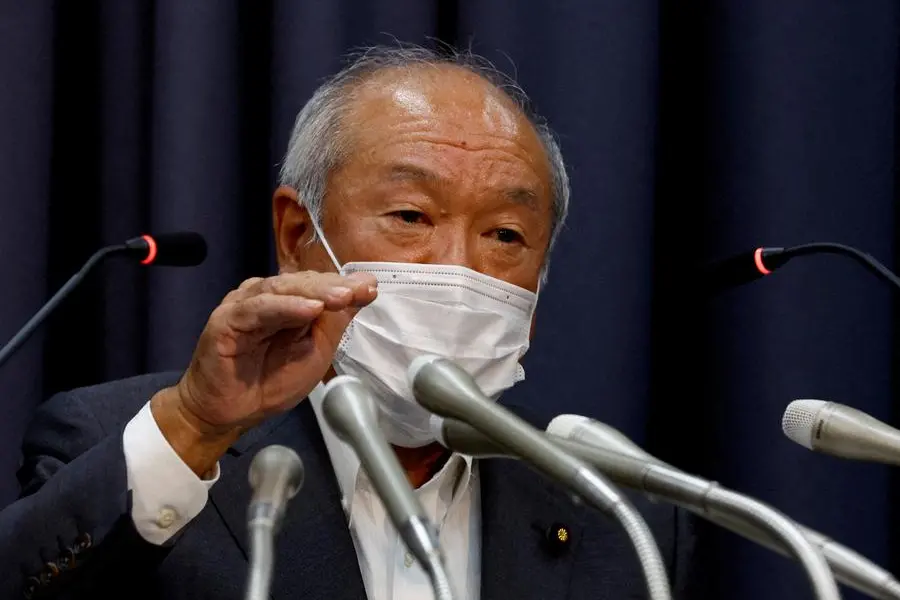PHOTO
TOKYO - Japan must stick to its target of a primary budget surplus by the 2025 fiscal year, Finance Minister Shunichi Suzuki said on Friday, even as a planned increase in defence spending raises the spectre of worsening already dire public finances.
"It's true, that's a lot of money," Suzuki said, referring to a plan for 43 trillion yen ($315.46 billion) in defence spending over the next five years.
"But we must stick to the aim of achieving a primary budget surplus by fiscal 2025," Suzuki said when asked about how increased defence spending might affect Japan's fiscal discipline.
Japan is saddled with public debt that is more than twice the size of its economy, the worst in the industrial world.
The government has said it aims to achieve a primary budget surplus, excluding new bond sales and debt servicing costs, by the end of the 2025 fiscal year, in March 2026.
"Fiscal discipline must be maintained," Suzuki added.
Prime Minster Fumio Kishida has announced plans to lift defence spending to the equivalent of 2% of gross domestic product within five years, from 1% now, to cope with an increasingly assertive China and unpredictable North Korea.
The prime minister told ruling coalition tax chiefs on Thursday to work out a plan by the end of the year for increasing taxes to fund this programme.
The government is set to raise defence spending by 1 trillion yen ($7.34 billion) to around 6.5 trillion yen in the next fiscal year as part of efforts to hit the five-year defence target, sources told Reuters.
The extra funding is aimed at procurement of ammunition and expenses related to long-range missiles, the sources said.
TAX HIKES OR MORE DEBT?
Kishida's government is considering raising taxes in stages after fiscal 2023 and towards 2027 to help fund the plan.
However, the idea of politically unpopular tax hikes has met stiff opposition from within his Liberal Democratic Party (LDP), where many lawmakers demand additional bond issuance instead.
"Voices against tax hikes dominated, with many saying we must not rush into hasty conclusion," one LDP lawmaker told reporters after attending a party meeting. "Some people said we have no choice but to raise taxes to secure stable funding sources. There are also many voices demanding debt issuance."
After fiscal 2027, the government will need to earmark additional spending worth 4 trillion yen a year, of which some 1 trillion yen would be paid by tax increases.
Of the three core taxes, Kishida has ruled out hikes in individual income tax and sales tax, signaling the possibility of a corporate tax hike, which would infuriate business circles.
Suzuki brushed aside the possibility of issuing additional debt. Instead, the government would focus on reforming spending and tapping unused budget and non-tax revenue, and put them together in a pool of funds for strengthening defence. ($1 = 136.3100 yen)
(Reporting by Tetsushi Kajimoto and Takaya Yamaguchi; Editing by Edmund Klamann, Robert Birsel and Crispian Balmer)





















